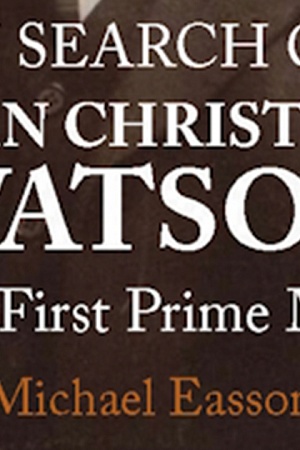Socialism and Modernity
University of Minnesota Press (NewSouth Books), $47.95 pb, 248 pp
The chastened vision
Over the past three decades, Peter Beilharz has carved out an important space in Australian social and socialist theory. Co-founder of the journal Thesis Eleven, Beilharz’s work ranges from studies of Australian labourism and European social democracy to more general works in socialist and social democratic theory. Alongside these he has written two important works addressing the themes of culture and modernity. One of them is a study of Bernard Smith (Imagining the Antipodes, 1997) and the other is on the Polish émigré sociologist Zygmunt Bauman (2000). The essays collected in Beilharz’s latest volume cover much of his intellectual journey over a period of twenty-five years ‘from socialism, to modernity, via Americanism’, as he titles his introduction. Beilharz well understands that the art of the essay is conversation rather than argument, raising possibilities rather than seeking a single answer. All the essays – engaging, learned, and undogmatic – reflect the kind of pluralistic and open-ended politics that Beilharz is concerned to promote.
One of the central themes in Socialism and Modernity is intellectual recovery. Beilharz wants to remind us of the pluralistic nature of the socialist tradition. This is easy to forget, given the way the Bolshevik experience dominates our understanding of socialism and, in the process, forecloses other alternatives. Likewise, while Marx remains the dominant theoretical presence in the history of socialism, Marxism is simply one tradition among many. The simple identification of Marxism with Bolshevism is problematic: ‘Marx might have generated some mischief, but he was no Bolshevik.’ According to Beilharz, there are at least five competing visions of the good society in Marx’s thought, ranging from the romantic and pastoral to the productivist, which welcomes the creative energies of capitalism as leading the way to the land of plenty.
The conflicts within Marx can perhaps be thought of as representative of socialism as a whole, since ‘from the beginning … socialists have been active in dispute as to whether socialism involves more progress or modernity or less’. Beilharz, then, is concerned with socialism as an ongoing critical dialogue with modernity, rather than with capitalism as such. This helps him to pluralise the socialist tradition and to put Marx in perspective: ‘To become open to modernity is simultaneously to place or limit Marxism and also to register the profundity of its critical claims.’ Along with Marx, these essays contain illuminating discussions of many of the important figures in modern socialism, from Eduard Bernstein, Edward Bellamy, and Karl Kautsky to Georg Lukács and Antonio Gramsci, and Bauman and Donald Sassoon.
Continue reading for only $10 per month. Subscribe and gain full access to Australian Book Review. Already a subscriber? Sign in. If you need assistance, feel free to contact us.










Leave a comment
If you are an ABR subscriber, you will need to sign in to post a comment.
If you have forgotten your sign in details, or if you receive an error message when trying to submit your comment, please email your comment (and the name of the article to which it relates) to ABR Comments. We will review your comment and, subject to approval, we will post it under your name.
Please note that all comments must be approved by ABR and comply with our Terms & Conditions.